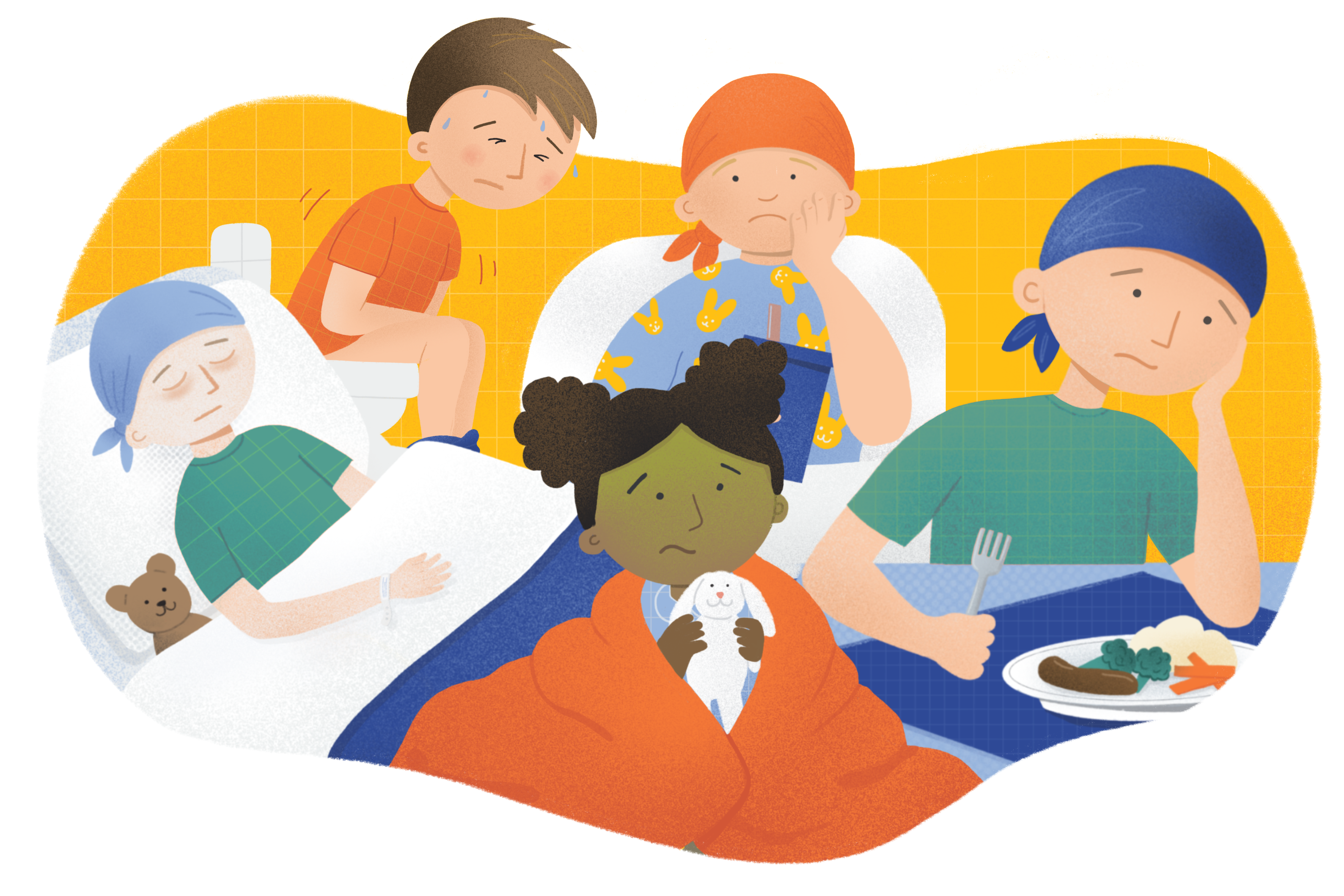Constipation and diarrhoea in children

What causes it?
One or more of these may make your child constipated:
- Chemotherapy and radiotherapy, as they can affect the way the bowel works
- Not being as active as usual
- Not eating or drinking very much
- Certain chemotherapy drugs, and pain medications such as vincristine and morphine
What are the symptoms?
- Discomfort and pain
- Change in appearance of the poo
- Straining
- Bloating
- Loss of appetite
- Tears in the skin around the anus
How is it treated?
Your child may need to take a laxative – this is a medicine to help them have a bowel movement. The aim is to make sure your child has one normal, soft bowel movement each day.
Medicines may need to be started and stopped as your child’s needs change – They can go from being constipated to having diarrhoea quite easily.
Tell the nurses or doctors if your child continues to have a problem.
Tips to help
- It’s easier to prevent constipation than to treat it. Encourage your child to drink plenty of fluids and eat foods with a lot of fibre, for example, brown bread, fruit and vegetables, baked beans, and foods with whole grains.
- Encourage your child to take some exercise, such as walking, if they’re able.
- It is also useful to talk to the dietitian about your child’s eating habits. He/she may be able to offer advice to help prevent or treat these problems.
Children, especially babies, can lose weight easily if the diarrhoea goes on for a while. If the poo becomes very watery there is a danger of the infant/child becoming dehydrated.
What causes diarrhoea?
- Chemotherapy and other cancer drugs and radiotherapy can affect the way the bowel works.
- Medicines such as antibiotics and some pain medication.
- Bowel infections.
What should I do if my child has diarrhoea?
Tell the hospital if your child develops diarrhoea and they will advise you what to do.
Look out for the symptoms of dehydration: dry mouth, passing small amounts of dark coloured urine.
How is it treated?
It is important for families to work with the medical team to make sure that symptoms are managed. Ways to help treat diarrhoea may include making changes to diet and medication.
You may be advised that your child needs to drink more fluids to avoid dehydration.
If diarrhoea is severe and if they are unable to take enough liquids to keep hydrated they may be admitted to hospital for intravenous fluids (fluids given into a vein).
Tips to help
- Encourage your child to drink plenty of clear fluids to replace what they lose in diarrhoea. Ask for advice on how much fluid your child should drink.
- Eating small amounts of food during the day instead of three large meals might help.
- Avoid foods with a lot of fibre, for example, brown bread, fruit and vegetables, baked beans, dried fruits and foods with whole grains.
- Take care with the following foods as they can make diarrhoea worse: Fatty, greasy and fried foods; fizzy drinks; cola and hot chocolate; citrus fruits, like orange and grapefruit
- Your child’s bottom may become quite sore from the diarrhoea. Use protective creams as advised by the hospital, and check the area frequently.
- Be careful about handwashing, especially if your child is having treatment that makes them more vulnerable to infections.
- It is important to wear gloves if you come into contact with your child’s stools (poo) for 7 days after your child has had their chemotherapy.
For more information
Phone
1800 200 700



